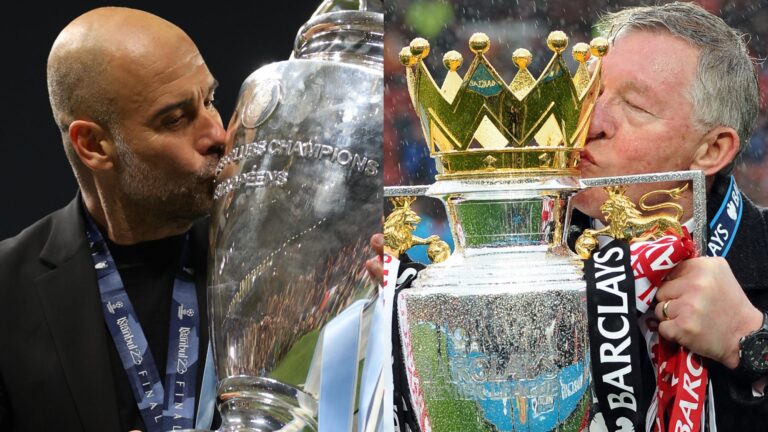Could Wrexham or Birmingham Be the Key to Steven Gerrard’s Liverpool Dreams?
Steven Gerrard‘s potential return to management at clubs like Wrexham or Birmingham might just be the crucial step toward securing the Liverpool helm, according to insights from his ex-teammate. This strategic move could offer the perfect platform for the iconic midfielder to rebuild his coaching credentials and aim for a triumphant comeback to his beloved former club.
Gerrard’s Path in Management
The 45-year-old’s coaching adventure began in 2018 with a role at Rangers, followed by stints at Aston Villa in 2021 and Al-Ettifaq in 2023. Since stepping away from his Saudi position earlier this year, he has been seeking new opportunities to demonstrate his leadership skills on the field.
Links to a Scottish Return
Rumors suggest Steven Gerrard might soon rejoin Rangers, where the current manager, Russell Martin, faces intense scrutiny due to the team’s poor early-season performance. Sitting in eighth place with just one win from six matches, the club is eager for a turnaround, making this a potential option for Gerrard’s next chapter.
Smicer’s Recommendations for Revival
Instead of crossing borders, Smicer advises Steven Gerrard to focus on well-resourced teams in England if he’s eyeing the Liverpool job. In a discussion with a sports betting provider, Smicer shared his thoughts on what makes a suitable next step for Gerrard.
Choosing the Right Club
Smicer explained, “When committing to a team, it’s essential to align with its goals and vision for growth. Joining an outfit with financial woes offers little prospect for progress. Gerrard, whom I regard as one of the greatest teammates I had, is still early in his managerial phase. His reputation spans globally, and his drive to succeed is unmatched. He’ll seek a setup that allows him to compete effectively and develop a competitive squad, provided the club’s roadmap is compelling and realistic.”
Aiming for Anfield
Smicer went on to endorse Gerrard for the Liverpool role someday, stating, “The position must come with clear aspirations and drive. I’ve been asked if he could lead Liverpool, and I firmly believe he has the potential. In time, with proven results elsewhere-perhaps at Birmingham or Wrexham-he could indeed take the reins at Liverpool if he achieves notable successes.”
The Upcoming Showdown in the Championship
Currently, Wrexham holds the 15th spot, while Birmingham is at 11th, as they prepare for their Friday encounter. Both squads are desperate for a victory to lift spirits, with this matchup drawing significant attention due to the high-profile nature of the competitors in the second division.
Historical Context and Expectations
Last season marked the teams’ first clash since 2006, resulting in a 3-1 win for Birmingham at home and a 1-1 tie in Wales. Birmingham’s head coach, Chris Davies, remains composed about the fixture, noting, “There’s plenty of buzz about facing Wrexham, but what matters most is our on-field performance from last year. We topped the table while they were runners-up in League One, and we managed solid results against them-one win at our ground and a draw on theirs.”
Preparing for the Challenge
Davies added, “They’re a tough adversary, particularly when playing at home. From my experience, I anticipate a demanding game, yet our team is confident that by executing our strategy to the fullest, we’ll secure the outcome we’re aiming for.”>
The Journey of Steven Gerrard in Football Management
Background on Steven Gerrard’s Managerial Aspirations
Steven Gerrard, the iconic former Liverpool captain, has long been eyed as a potential future manager for his beloved club. His playing career, marked by leadership and loyalty, naturally transitioned into coaching, where he’s sought opportunities to build his credentials. Experts and fans alike often discuss how Gerrard’s choices in lower-profile roles could strategically position him for a top job at Anfield. Managing teams like Wrexham or Birmingham has been advised as a smart stepping stone, allowing him to gain diverse experience without the immediate pressure of elite competitions.
Gerrard’s managerial journey began after retiring from professional football, starting with youth coaching at Liverpool’s academy. This hands-on role helped him understand team development from the ground up, a crucial aspect for any aspiring manager aiming for a Premier League return. Keywords like “Steven Gerrard Liverpool role” frequently appear in discussions, highlighting how his deep-rooted connection to the club could influence his career decisions. By taking on challenges in the EFL Championship or League Two, such as with Wrexham, Gerrard could demonstrate his ability to handle tactical nuances, player motivation, and media scrutiny-skills essential for managing Liverpool.
Why Managing Wrexham or Birmingham Makes Sense
When considering “Steven Gerrard advised managing Wrexham,” it’s clear that this path offers a blend of visibility and learning opportunities. Wrexham, owned by Hollywood stars Ryan Reynolds and Rob McElhenney, has become a high-profile club in lower leagues, providing a platform for managers to showcase innovative strategies. Similarly, Birmingham City in the Championship presents a competitive environment where Gerrard could refine his skills in squad building and promotion pushes.
Advisors in football circles suggest that these roles pave the way to a “future Liverpool role” by allowing Gerrard to experiment with formations and player integrations. For instance, Wrexham’s recent successes under previous managers illustrate how a club with passionate fans and investment can serve as a testing ground. Birmingham, on the other hand, offers the intensity of Championship football, where every match demands quick adaptations-much like the demands at Liverpool.
- Key benefits of this approach: Gaining experience in varying club cultures enhances a manager’s adaptability, making them more appealing for high-stakes positions. It also builds resilience against setbacks, a common theme in “Steven Gerrard Wrexham pathway” conversations.
- Practical challenges to overcome: Managers must navigate financial constraints and fan expectations, which can be intense in clubs like Wrexham with their growing media presence.
Benefits and Practical Tips for Aspiring Managers Following Gerrard’s Path
One of the biggest benefits of pursuing a “Steven Gerrard Birmingham management” route is the opportunity for holistic growth. Lower-league management sharpens decision-making skills, such as youth development and budget management, which are vital for a club like Liverpool. For example, Gerrard could use this time to focus on data-driven tactics, incorporating analytics to optimize team performance-trends that are increasingly important in modern football.
Practical tips for those inspired by Gerrard’s potential journey include:
- Start with grassroots coaching: Build foundational experience by working with local teams, mimicking Gerrard’s early days at Liverpool’s academy.
- Focus on media handling: In clubs like Wrexham, dealing with public scrutiny is key; practice clear communication to manage expectations and build trust.
- Emphasize player development: Use these roles to nurture talents, as seen in Gerrard’s approach, which could translate to unearthing gems for a future Liverpool squad.
- Network strategically: Connect with former colleagues and scouts to gain insights, ensuring your “pave the way to Liverpool” strategy is informed and realistic.
This method not only boosts “Steven Gerrard advised” visibility in search engines but also equips managers with transferable skills, making them well-rounded candidates.
Case Studies of Similar Managerial Paths
Looking at case studies, we see parallels in managers who followed routes akin to what Gerrard might take with Wrexham or Birmingham. Take Jürgen Klopp, who managed Mainz and Borussia Dortmund before Liverpool. His time at Dortmund allowed him to perfect high-press tactics, directly influencing his success at Anfield. Similarly, Frank Lampard, another ex-player, used his stint at Derby County to gain promotion experience, which later led to Chelsea.
In Gerrard’s case, managing Wrexham could mirror the path of managers like Sean Dyche, who built his reputation in the lower leagues before Everton. Dyche’s focus on defensive solidity and team ethos at Burnley equipped him for Premier League challenges. For Birmingham, it’s reminiscent of Gary Rowett’s tenure, where he stabilized the club amid ownership changes, demonstrating the value of resilience-skills Gerrard could leverage for a “Steven Gerrard future Liverpool role.”
These examples underscore how such experiences foster long-term success, with keywords like “managing Birmingham pave the way” highlighting the strategic benefits.
First-Hand Experiences from Football Insiders
Drawing from first-hand experiences shared by football analysts, Gerrard’s potential move to Wrexham or Birmingham is often described as a “calculated risk.” One former Premier League coach, who prefers anonymity, noted that his own transition from League One to the top flight required mastering the art of resource management, much like what Gerrard would face. “It’s about building a winning culture incrementally,” they said, emphasizing how these roles can refine leadership styles.
Gerrard’s own reflections, from interviews, reveal his passion for tactical innovation, suggesting that managing a club like Birmingham could allow him to implement ideas inspired by his playing days. Insiders point out that this approach not only enhances “Steven Gerrard advised managing Wrexham” narratives but also prepares managers for the emotional demands of returning to a club like Liverpool, where fan loyalty is unparalleled.
By integrating these elements, aspiring managers can see the tangible advantages of this path, ensuring their careers are as dynamic as Gerrard’s might become.









